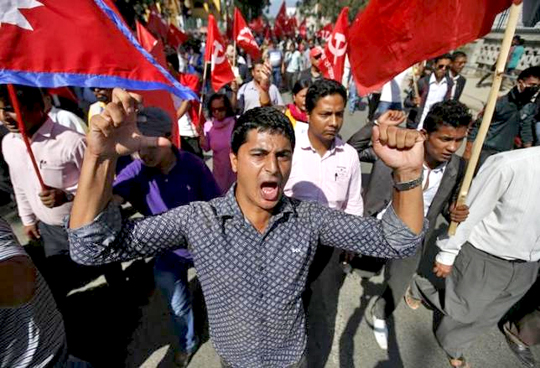Kathmandu, Nov 2: Nepali police shot and killed an Indian citizen at a border checkpoint on Monday as they tried to clear protesters whose blockade has strangled Nepal's fuel supplies and badly damaged relations between the neighbours.
Nepal has faced an acute fuel crisis for more than a month since protesters in the lowland south, angered that a new constitution fails to reflect their interests, prevented supply trucks from entering from India.
Many in Nepal see India's hand in the protests although it denies any role.
With the landlocked Himalayan nation of 28 million recovering from its worst earthquake on record, the government has turned to China for extra fuel. Officials said some Chinese oil was due to arrive in Kathmandu late on Monday.
Raju Babu Shrestha, the police superintendent in the Birgunj border district, said protesters threw petrol bombs and stones at a police post prompting them to "fire in self defence".
"One protester, an Indian national, who was attacking the police post with the petrol bomb was killed in the firing," Shrestha said.
More than 20 people including 15 police officers were injured in the clash, he said.
Indian foreign ministry spokesman Vikas Swarup said India was deeply concerned about the violence in which "an innocent Indian" was killed. He said Indian fuel-truck drivers were advised not to put themselves in danger.
Protests over a new constitution turned violent in August, leading to more than 40 deaths, as southern plains dwellers objected to seeing their lands divided and included in several federal states dominated by mountain communities.
The constitution was nonetheless adopted on Sept. 20, paving the way for the formation of a new government headed by Prime Minister K.P. Oli, who has so far failed to calm passions that have paralysed economic and political life.






Comments
Add new comment